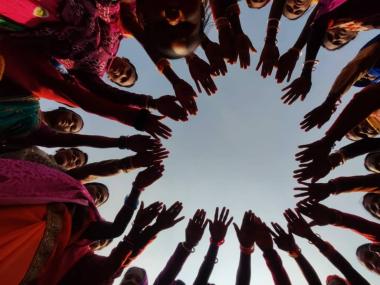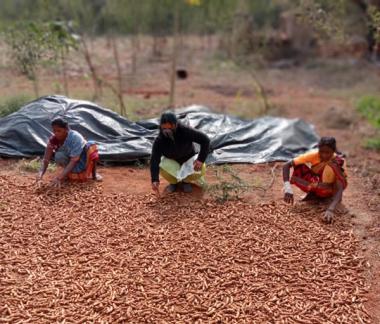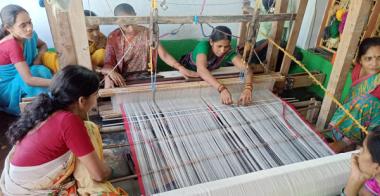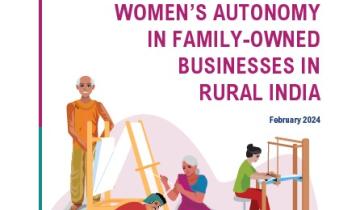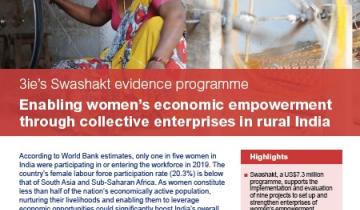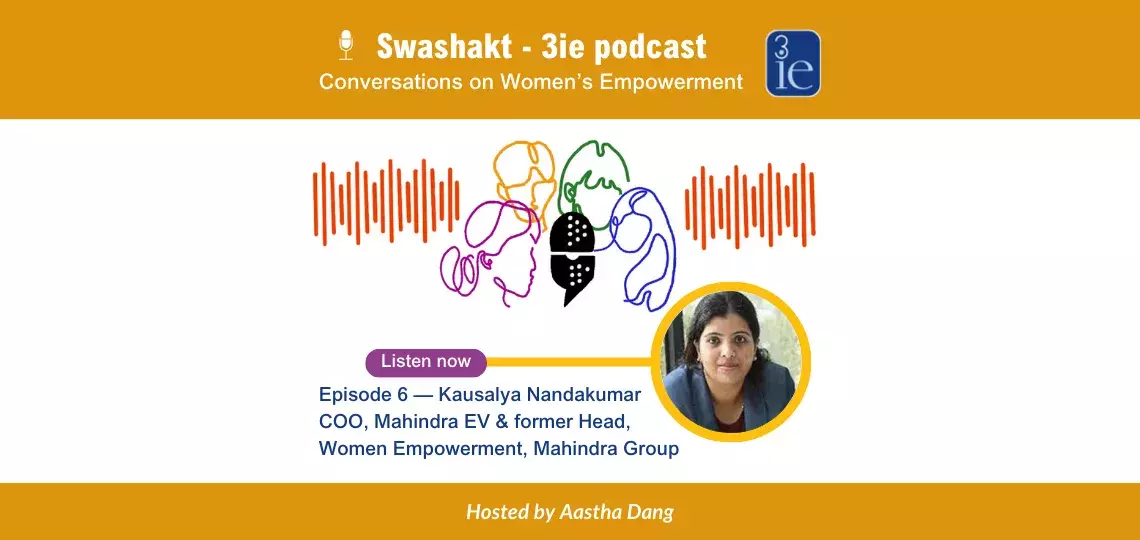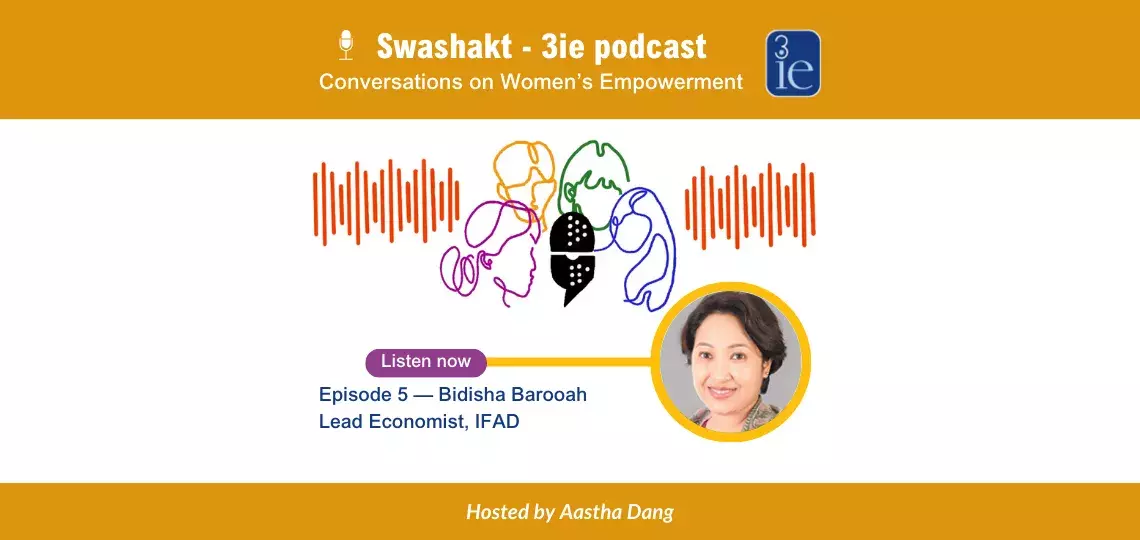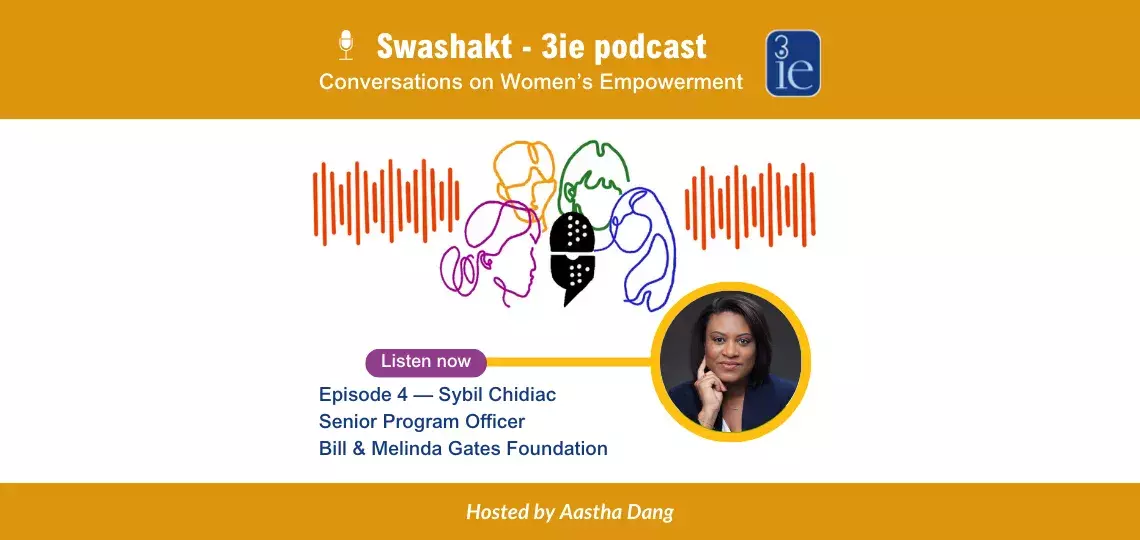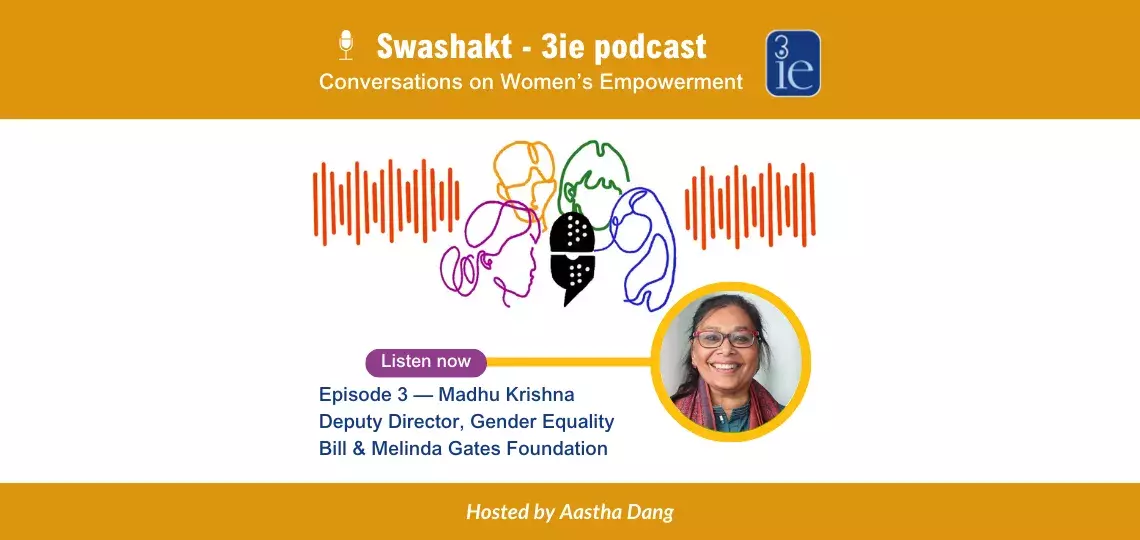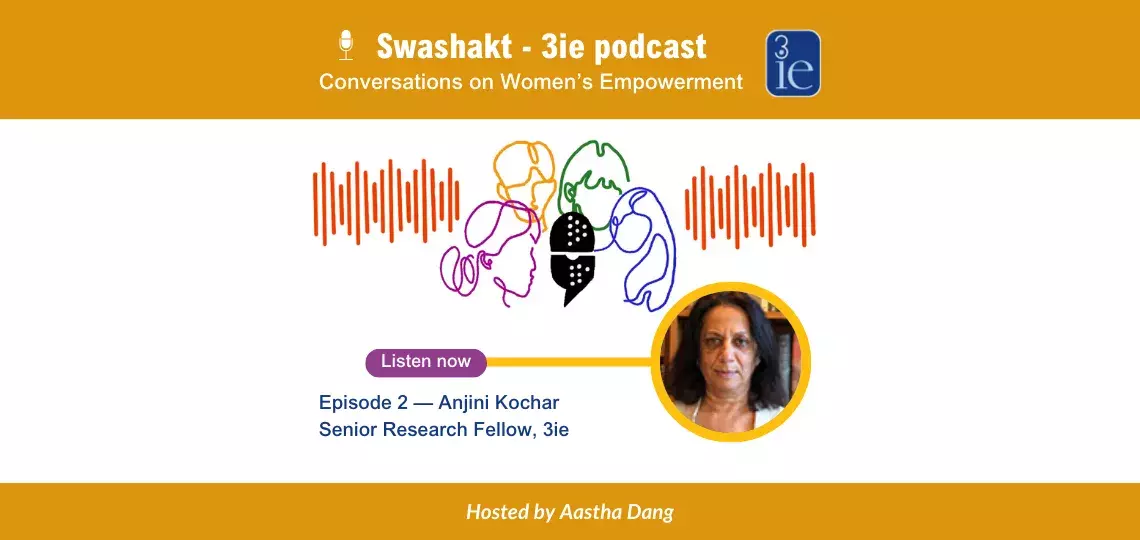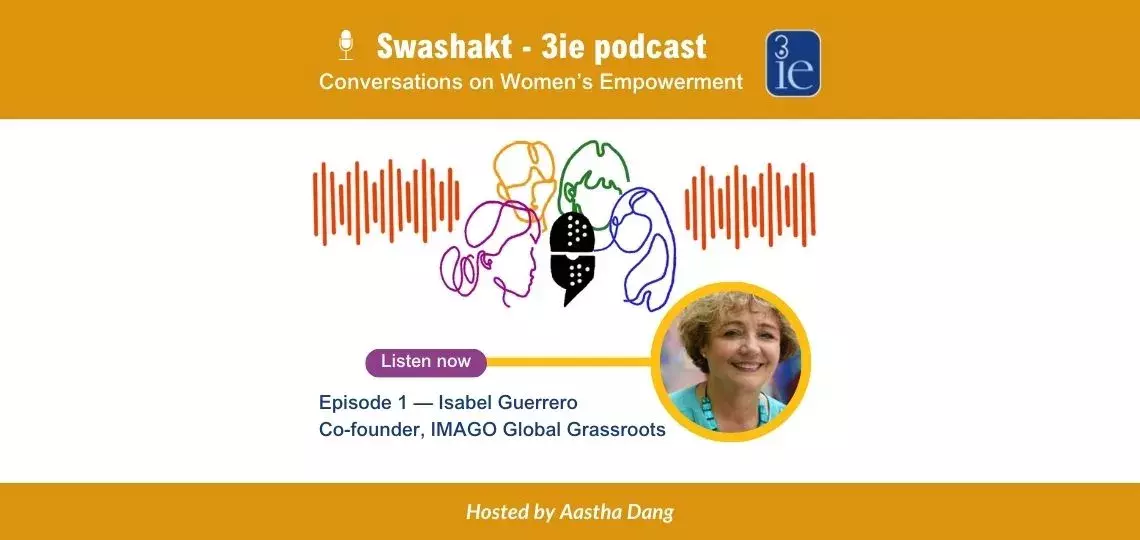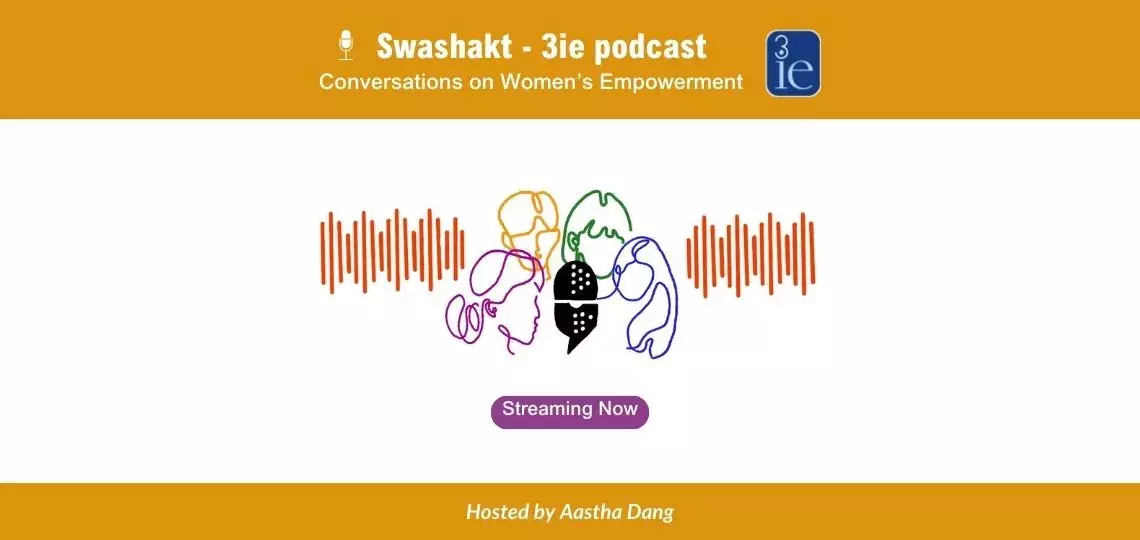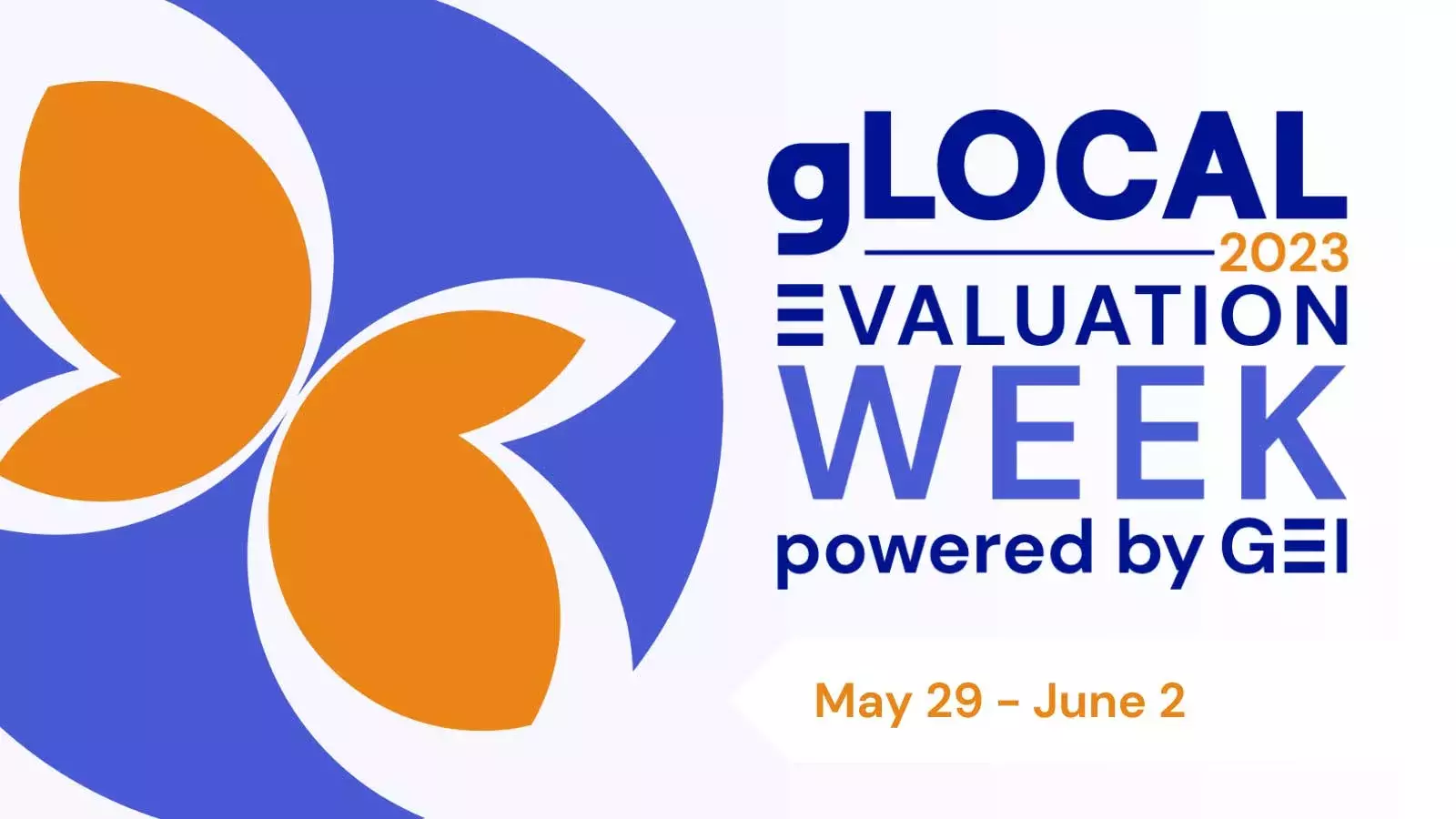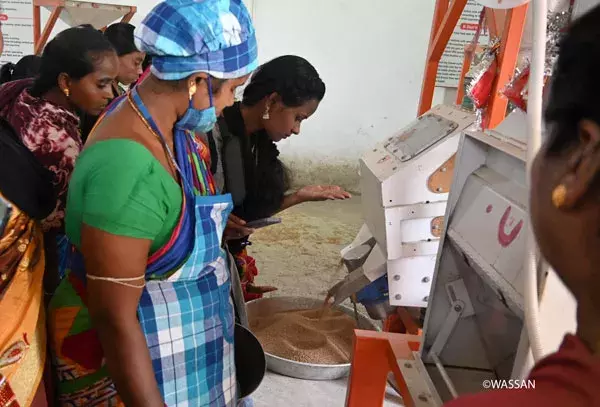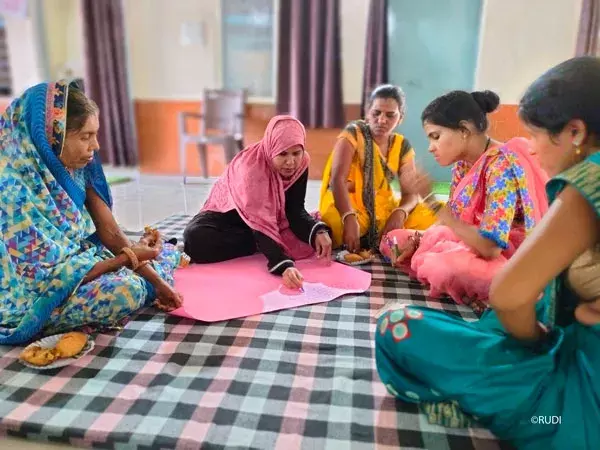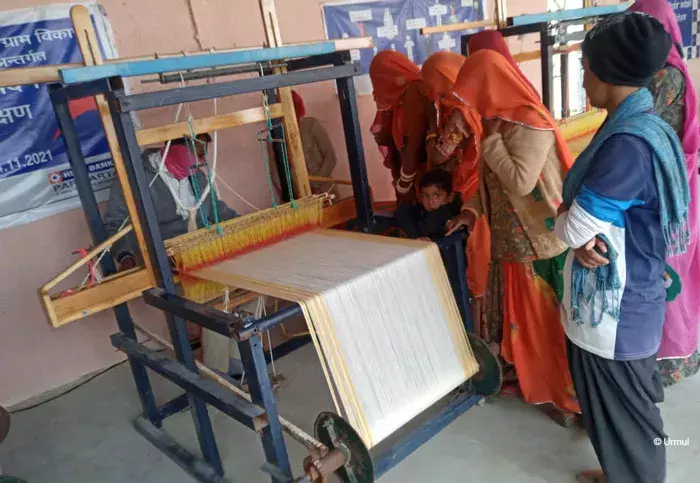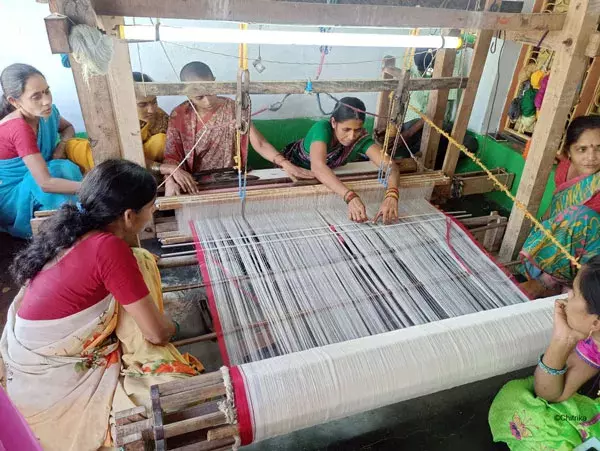Swashakt: Empowering Indian Women’s Collectives
India has one of the lowest female labor force participation rates in South Asia. Among rural women, less than 30 per cent are engaged in productive work, paid or unpaid. The government of India has several programs to enhance women’s livelihoods and their economic and social empowerment, several of which emphasize women’s collectives. 3ie’s Swashakt Program is supporting interventions to identify what works to enhance viability, scalability and returns of women’s collective enterprises and promote women’s economic empowerment.
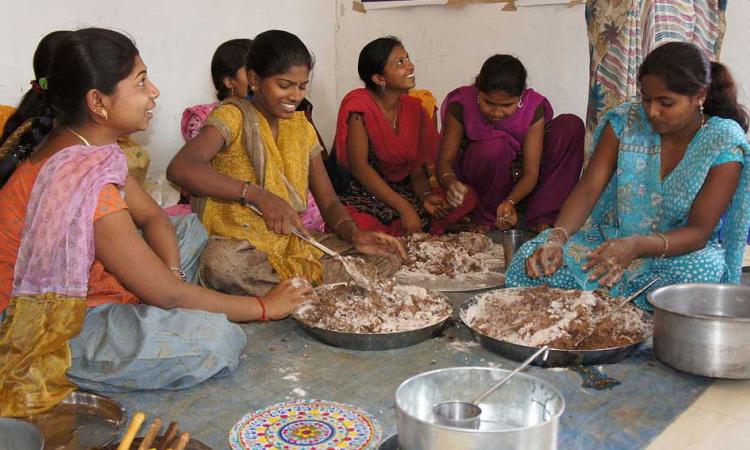
Overview
3ie funded the implementation of four pilot and five at-scale projects across ten Indian states that supported collectives and group-based models for women-led businesses. These included non-farm and service enterprises operating in partnership with the government. We supported mixed-methods evaluations that assessed the feasibility and effectiveness of these nine projects. Their implementation included some or all of the interventions below.
 Formation of Women’s Empowerment Collectives (WECs)
Formation of Women’s Empowerment Collectives (WECs) Investments in Assets and Infrastructure
Investments in Assets and Infrastructure Product Innovation
Product Innovation Market and Institutional Linkages
Market and Institutional Linkages Capacity Building
Capacity BuildingThe Bill & Melinda Gates Foundation supported this work. LEAD at Krea University is our grant management partner. This program leverages our existing work on understanding the impacts of the National Rural Livelihoods Project (within DAY-NRLM) with India’s rural development ministry. To know more about how the program seeks to work towards women's empowerment, view this presentation.
To learn about the state-wise Swashakt projects, click on the map below.
Swashakt projects: sectors and interventions
Projects
The nine Swashakt projects used different approaches to support women’s collective enterprises in farm and non-farm sectors. Broadly, while some tested innovative enterprise models, others tested new interventions with existing women’s collective enterprise models. The third category of projects was related to scaling up successful models.
While some projects worked with government agencies, others implemented and tested private sector models. Five of the projects focused on women’s collective enterprises in one state each, while the other four delivered their interventions to collectives across up to three states.
Monitoring implementation
To understand the progress ofhow Swashakt projects are progressing towards intended outcomes, we are conducted monitoring of key performance indicators. Here are a few illustrative examples:
- Women’s participation in collectives: the number of entrepreneurs who are part of women’s collective enterprises, and how many of them are women.
- Performance of the collectives: the monthly revenue generated and monthly wages paid by the collectives.
Click on the infographic below to explore the performance metrics from the one-year and three-year projects.
Swashakt monthly digest
To view past updates and monitoring data, click on the issue below:
2023: January| February | March | April
2022: December| November | October| September| August | July| June| May| April| March| February| January
Evaluation approach
For the one-year long pilot projects, grants funded appropriate formative research examining project feasibility and work as proof of concept. For the three-year established models that were scaled, grants supported impact and process evaluations.
The evaluations used a mix of quantitative and qualitative methods to address the main research questions of individual projects measuring:
- Feasibility of pilot interventions
- Success of scaled interventions
- Collectives’ linkages to women's empowerment
- Equity impacts of interventions
A meta-analysis was undertaken across scaled projects and the pilots, respectively, to measure the following outcomes and identify learning to inform decision-making around women’s collective enterprises.
- The enablers and barriers to setting up women’s collective enterprises.
- The enablers and barriers to scaling them up.
- The equity and empowerment impact of innovative value chain development and marketing interventions.
Features and news
Swashakt: Conversations on women’s empowerment
The Swashakt podcast series aims to explore pathways towards economic empowerment and self-empowerment for women – primarily in India but also beyond. In these conversations, we dig into what we know and where we need more evidence. Hear from experts whose learning and experience can act like beacons on this journey. Click below to listen to the episodes.
Swashakt stories from the field
As the Swashakt partners implemented their projects, our learning about the enablers and barriers to supporting and strengthening women’s collective enterprises has grown. Click on the stories below to visit our Medium space and dip into these insights.
In the media
Aastha Dang, Divya Pandey, Fatema Patel and Shreya Banerjee authored an article for Ideas for India - an economics and policy portal - based on findings from the Chitrika project process evaluation. Read the piece here: Supporting Women Weavers: Learnings from Producer Companies
gLocal 2023 Webinar | Strengthening evaluation of Swashakt women's empowerment projects
Jane Hammaker and Shreya Banerjee highlighted the value of process evaluation in documenting and understanding implementation processes, challenges, and participants' stories as part of 3ie's Swashakt program. They shared learning on the sociocultural context of participants, project implementation, and similarities and differences among collectivization models used to empower women in five states of India.
View a recording of the event here
gLocal 2022 Webinar | M&E from ground up: Lessons from monitoring the Swashakt program
3ie's Bidisha Barooah and LEAD at Krea University's Morchan Karthick shared insights from setting up monitoring and evaluation (M&E) frameworks for the Swashakt program so they could be more mixed-methods, inclusive and adaptive to ground realities, and balance accountability with implementer ownership. Tara Nair of GIDR, as the evaluator of ANANDI's Swashakt project in Gujarat, India, highlighted a flexible and evolving M&E system that built ownership by being focused on learning rather than accountability. Madhu Khetan (PRADAN) shared that top-down M&E systems may collect a lot of data, such as through tablets, but much effort and changes (in granularity, language, feedback loops) are necessary for these to be useful to implementers. All speakers concluded that co-developed adaptive M&E systems are extremely important. These systems are most useful when owned by the implementers and triangulated by users. Such M&E data is more likely to be ethical, accurate and useful to all concerned. However, recentering M&E frameworks so they are understood and used by capacity-stretched implementers is resource-intensive and may be hamstrung by lack of sufficient investment from program supporters.
View a recording here | Read more about the gLocal event here
Webinar | Helping to build a solutions toolbox for women's collective enterprises
Bidisha Barooah, Leader, Gender and Livelihoods, 3ie, presented the theory of change for 3ie’s Swashakt program at the Women's Collective Enterprises track as part of the Livelihoods India Summit 2021. The theory of change framework links interventions for strengthening collective enterprises with their impact on women’s empowerment and highlights what we know and what we need to know about this linkage. The presentation also covered the different ways in which Swashakt projects are supporting collective enterprises. This was followed by a discussion, where panellists drew on their experiences in working with women’s collective enterprises.
View a recording of the event here | Read more about the women's collective enterprises track here
Contact us
For more information on the technical aspects of individual projects or the overall program, please write to Chandan Jain (cjain@3ieimpact.org) and Divya Pandey (dpandey@3ieimpact.org). If you have any other queries, please write to Asha Gosain (agosain@3ieimpact.org) and Mansoor Ali Sait (msait@3ieimpact.org).
